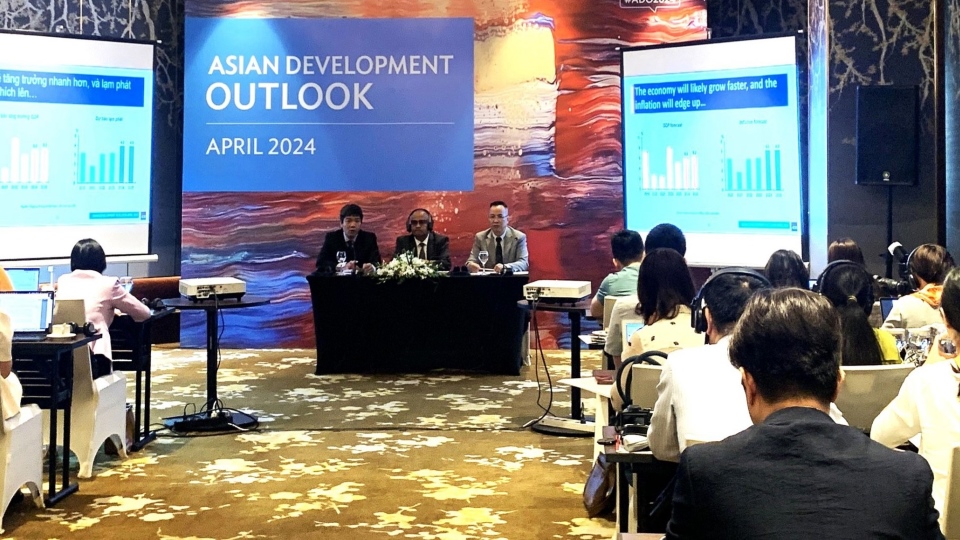HCMC – Vietnam’s economy is set to maintain robust growth despite global uncertainties, according to the Asian Development Bank (ADB).
Shantanu Chakraborty, ADB’s country director for Vietnam, said at a press briefing on April 11 that ADB stands by its earlier forecast, predicting Vietnam’s economy to grow 6.0% in 2024 and 6.2% in 2025 despite prolonged external uncertainties.
However, policy measures in 2024 should combine short-term growth support with long-term structural reforms to foster sustainable growth, Chakraborty said.
Global demand softening due to slow economic recovery and ongoing geopolitical tensions, coupled with delayed interest rate normalization in the U.S. and other advanced economies, are expected to hinder Vietnam’s export-led growth and monetary policy shift towards growth support.
The growth slowdown has heightened concerns about structural fragilities, such as overreliance on FDI-led export manufacturing, weak linkages between manufacturing and other sectors, and regulatory barriers to business.
ADB sees public investment as a critical engine of economic growth, noting that plans must be implemented for this engine to provide power. However, the execution rate compared to planned investment has been consistently low, hovering around 80% for the year. While the Government has tried to address this problem, progress has been insufficient.
Firstly, projects that have been approved with allocated budgets sometimes face delays in moving forward due to unpreparedness. Secondly, projects may encounter the need for design or budget changes even after approval and allocation, leading to prolonged interruptions before work can commence. One significant hurdle to timely and effective project preparation is the complexity of regulations, especially concerning land use planning, acquisition, and site clearance.
Thirdly, weak coordination between public investment and budget processes has led to inadequate and slow budget allocation. Reports indicate that central agencies often receive higher allocations than they can utilize, while provinces receive insufficient funds to meet their needs. This mismatch between allocated budgets and investment mandates results in inefficiencies and project implementation delays. Consequently, funds may not be optimally directed towards priority areas, leading to suboptimal resource utilization and hindering project progress and capital efficiency.
In 2024, public investment will remain crucial for bolstering the economy. After receiving approval from the National Assembly, the prime minister sanctioned a capital allocation plan totaling VND688.5 trillion to sustain infrastructure development and propel economic growth.
The Government has introduced several policy measures to accelerate the disbursement of public investment and improve execution efficiency. These measures encompass a range of resolutions and directives targeting various aspects of public investment disbursement.









